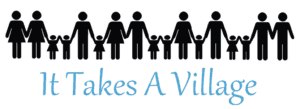Oftentimes, the role of the Postpartum Doula is not well understood. Friends, family members and expecting parents frequently ask, “so, what does a Postpartum Doula do?”
The role of the Postpartum Doula is one of the most sacred relationships a new family will have with a provider, during one of the most intimate times in their lives – after the birth of their baby. We are in the home helping new families adjust and transition after the birth of their baby, caring and nurturing the family and offering non judgmental support.
While tasks like unloading the dishwasher, folding a load of laundry and changing the baby’s diaper might be obvious ways a Postpartum Doula supports a new family, today I want to discuss the value of emotional support during the postpartum period.

Emotional Support
“Emotional support is given to us by people who understand, encourage and reassure you.” (1)
“The ability to show empathy, compassion and genuine concern for another person…Emotional support is born out of real, authentic relationships with other people.” (2)
I woke up Sunday morning to a text from a previous client asking if I was available to help with the baby. She was sick, had been throwing up since the early morning and couldn’t keep anything down. Knowing from her past history and illnesses, she was advised to go to the hospital for IV’s and daily medications so that they could be administered through injection. I was going to stay with the baby so her husband could take her to the hospital.
After arriving to their home, it was decided that dad would stay home with the baby and toddler and I would take mom to the hospital. It had been almost 2 months since I had worked with the baby and dad knew his and the toddler’s schedules better.
So I drove her to the ER, helped her get admitted and spent the next 4 hours with her there. At first she was very weak and could barely walk or keep her eyes open. I stood next to her, made sure she didn’t fall and sat next to her while she rested and received her IV. I texted her husband to update him and helped the administrator collect payment (which was requested at a terrible time in my opinion) for her insurance copay. If she needed anything, I made sure she got it. Because she was pretty out of it, I closely observed everything being done and asked questions when appropriate so that I could relay this information to both the mom and dad. This situation reminded me a lot of what it’s like for a new family giving birth and the first few days postpartum. So much happens in a short amount of time and everyone is tired. An extra set of eyes to observe or hands to take notes can make a world of difference.

About 2.5 hours later, she was feeling a little better. The anti nausea medication and Tylenol for her fever had started to kick in and her energy came up a little from the electrolytes in the IV. Her blood sugar was still quite low, so she was given some juice and started on another bag of fluids. Up until this point she had been pretty quiet, but soon she started asking questions and showing an interest in conversation, so we talked – about how the baby was doing, how the toddler was transitioning, upcoming changes to the family’s work schedule, how she was sleeping and a lot more.
Somewhere during this time, my client asked about receiving the injectable form of her medication. The nurse wasn’t going to give it because “it’s not something we usually do”, but my client knew better. In the past she had been given a much higher dose when being sick because she was advised by the specialist. If the higher dose isn’t given, the current illness (flu, virus etc.) will take much longer to get over. I asked again and was told that she needed to verify her daily dose as “that is all the PA wants to give”. I verified the dose with her husband and told the nurse, then encouraged my client to talk directly to the nurse to push for it. The hospital had records from her last visit to verify the higher dose. Finally, she received the higher dose!
About 1:30 pm my client was discharged. Her energy was better, her fever was gone, she no longer had the chills, her eyes had cleared up, nausea was gone and she had an appetite! Just a quick stop for some Gatorade and we were headed home.
We returned to their home, both children sleeping (good job dad!) and her husband resting on the couch. After updating him, offering to drop off her prescription and making sure they didn’t need anything else, I was on my way.
The Postpartum Doula’s role is not always conventional, as in this instance. Sometimes a family needs you to be the person that can stay in the hospital, advocate for them, listen and fill the gap. I am so thankful that my relationship with this family is one where they feel comfortable texting me at 5 am in an emergent situation, not caring how they look or feel and know they can lean on me when needed.
It truly takes a village.
References:
- https://psychologydictionary.org/emotional-support/
- http://www.mental-illness-resources.com/define-emotional-support.html
Disclaimer:
The content contained in this blog is for informational and educational purposes only. It is not intended as medical advice or to replace the advice of any medical professional. It is based on our opinions and experience working with newborns and their families. Other’s opinions may vary. It does not represent the views of any affiliated organizations. The reader understands that term “Babynurse” is often a word used to describe a newborn caregiver. However, unless otherwise disclosed, we are not licensed nurses in any state. By reading and/or utilizing any information or suggestions contained in this blog, the reader acknowledges that we are not medical professionals and agrees to and waives any claim, known or unknown, past, present or future.
© 2018 Bishop Enterprises, LLC All Rights Reserved
